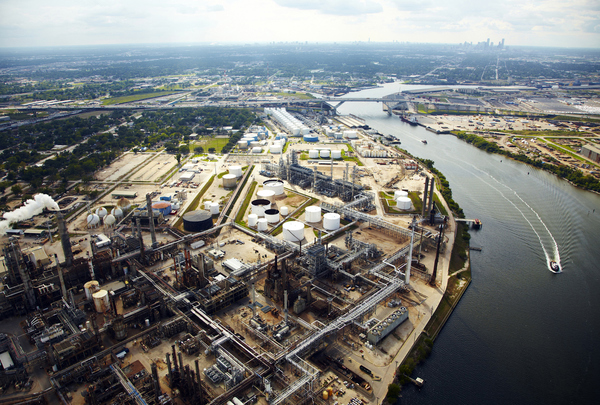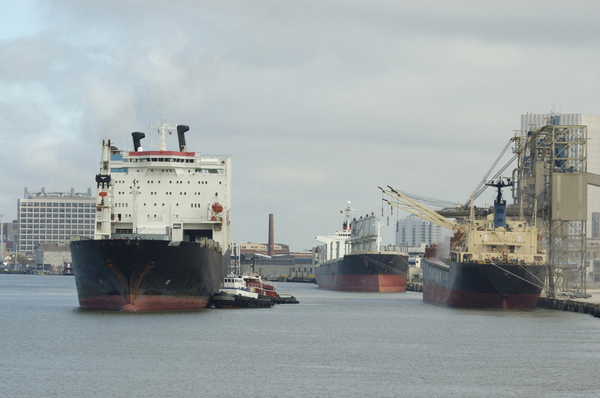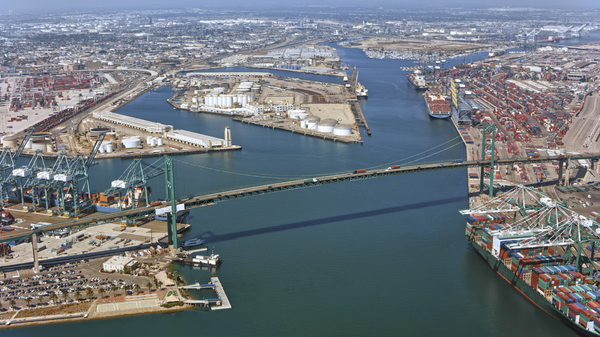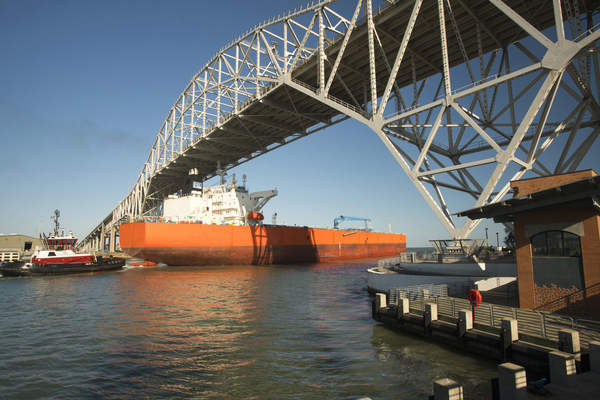Americas Fuel Availability Outlook 12 Jun 2025
Bunker demand in Houston remains weak
Argentina authorised voluntary use of biofuels
VLSFO availability in Zona Comun improves
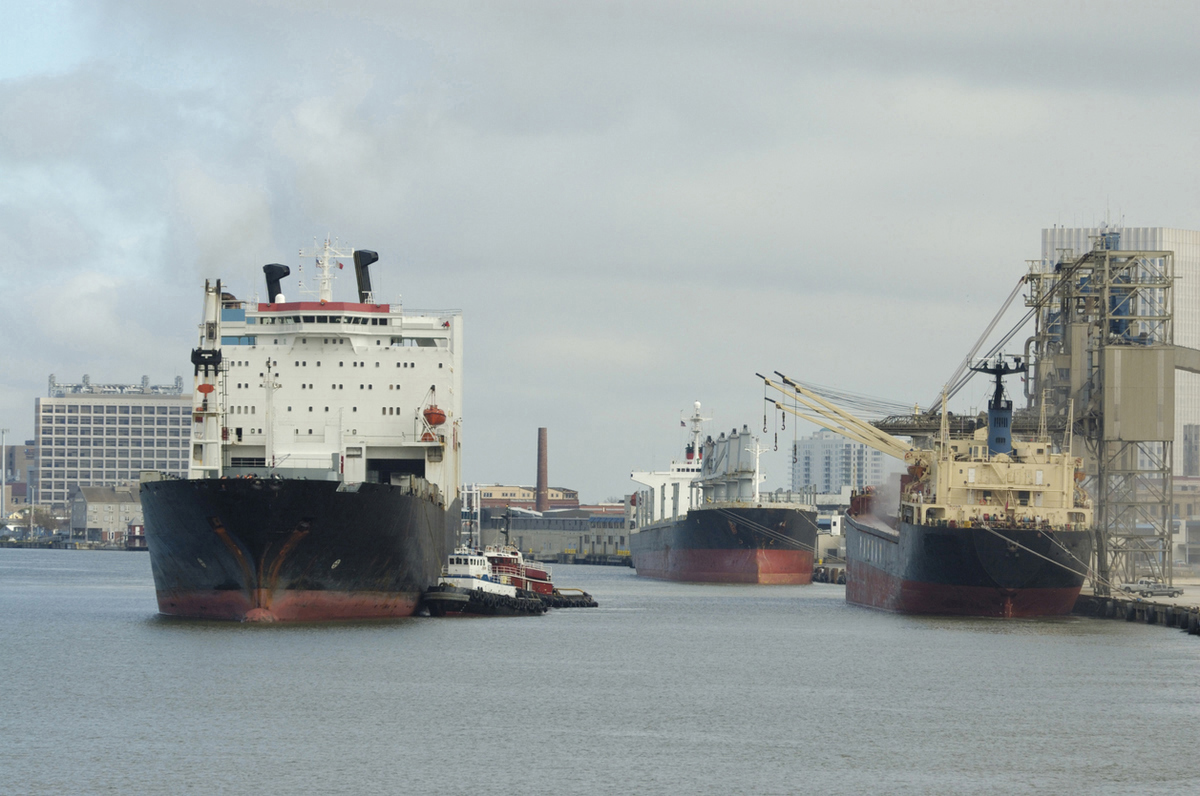 IMAGE: A cargo ship being moved by tugboats in the Port of Galveston, Texas. Getty Images
IMAGE: A cargo ship being moved by tugboats in the Port of Galveston, Texas. Getty Images
North America
Bunker demand in Houston remains weak across all fuel grades. Both VLSFO and LSMGO are readily available, with recommended lead times of 3–5 days. HSFO is also stocked, though prompt deliveries may face delays due to barge congestion, requiring lead times of at least 7 days and above.
In the last 24 hours, 77 vessels have arrived at the port, and 122 more are expected over the next 30 days.
The US Gulf region has entered its hurricane season, which will last through 30 November.
"This is likely to bring bouts of bad weather that could disrupt bunkering operations, particularly around the Bolivar Roads anchorage," a source noted.
In Galveston Offshore Lightering Area (GOLA), deliveries are suspended due to high seas and are likely to remain so until the afternoon of 13 June.
Bunker operations are being carried out on a first-come, first-served basis, where weather conditions allow.
In New York, bunker demand remains good. All fuel grades are available at the port for prompt delivery, with suppliers recommending lead times of around 5 days.
High wind gusts are forecast between 12–13 June at the port, which could lead to disruptions. No backlog congestion or barge readiness issues are currently reported.
Both bunker fuel availability and demand at the Port of Los Angeles remain steady. Suppliers say they can deliver all the fuel grades in less than 7 days.
While importers have been frontloading cargo in anticipation of the upcoming end to the tariff pause, according to the Port of Los Angeles' Port Optimizer, import volumes declined during the week between 8–14 June, reaching 94,692 TEUs from 17 scheduled vessel calls.
This represents a 5.82% drop from the previous week and an 18.98% decrease year-on-year.
However, volumes are expected to rebound in Week 25, i.e, 15-21 June, with 121,916 TEUs expected from 22 scheduled vessels. This reflects a 28.75% week-on-week increase and a significant 41.27% rise year-on-year (YoY).
Rising tariffs and ongoing uncertainty in US-China relations have significantly slowed the movement of goods, impacting jobs, businesses, and local economies in tangible ways.
Data from the Chinese government revealed that exports to the US plummeted by 35% YoY in May — the sharpest decline since the early 2020 trade freeze during Covid lockdowns. This followed a 21% drop in April.
In Canada's Montreal, bunker operations may face disruptions on 12 June due to high wind gusts. Barge services operate only during daylight hours, and delays at anchorage are possible.
Latin America and the Caribbean
The market is still very quiet in Panama. All fuel grades in Balboa and Cristobal can be supplied within 5-7 days.
In Balboa, from 12-16 June, high winds and thunderstorms may disrupt bunkering. Deliveries operate on a first-come first serve basis, with priority given to vessels with confirmed Panama Canal transit slots.
Ongoing drought conditions are still affecting transit through the Panama Canal, causing delays in vessel movements, especially for ships with deeper drafts.
In the Bahamas’ Freeport and St. Eustatius, no weather disruptions are expected. Deliveries are being made at the anchorage, with cruise ships receiving priority. No barge congestion is reported.
In Trinidad Offshore, from 12-16 June, high wind gusts and high seas could impact bunker deliveries. No barge readiness congestion has been reported at the moment.
Argentina has authorised the voluntary use of biofuels or biofuel blends for river and sea vessels, as long as their engines are compatible.
To support this, the government has introduced a new “Bunker Operator” category in its official registry. Companies supplying marine biofuels must now register and follow certain rules, helping ensure proper handling, safety, and fuel quality.
The anticipated increase in Argentina’s maize production and export volumes is also expected to drive higher vessel traffic at key ports, which could in turn boost bunker fuel demand and impact delivery schedules, another source informed.
VLSFO availability in Zona Comun has significantly increased, with lead times now at 5-6 days, down from the typical 10-12 days.
High wind gusts are expected from 12-16 June, and if wind speeds exceed 20 knots, bunker deliveries will be suspended, the port authorities said.
Bunker fuel supply continues to be stable across key Brazilian ports, including Santos, Rio de Janeiro, and Rio Grande, with VLSFO and LSMGO available for prompt delivery. HSFO is not supplied at these ports. Recommended lead times are around 5–7 days.
Operations at the Port of Santos remain affected by congestion, though conditions are expected to ease in the next few days.
Meanwhile, bunker availability in Colombia’s Barranquilla, Cartagena, and Santa Marta ports also remains good, with recommended lead times of 2–3 days, according to a source.
By Gautamee Hazarika
Please get in touch with comments or additional info to news@engine.online

Contact our Experts
With 50+ traders in 12 offices around the world, our team is available 24/7 to support you in your energy procurement needs.

